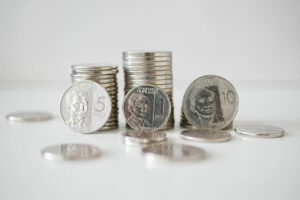THE PESO inched higher against the dollar on Wednesday as the market awaits the release of the December US consumer price index (CPI) data, which could affect the US Federal Reserve’s policy easing cycle.
The local unit closed at P58.575 per dollar on Wednesday, rising by 4.5 centavos from its P58.62 finish on Tuesday, Bankers Association of the Philippines data showed.
The peso opened Wednesday’s session slightly weaker at P58.65 against the dollar. Its intraday best was its closing level of P58.575, while its worst showing was at P58.70 versus the greenback.
Dollars traded went down to $1.37 billion on Wednesday from $1.42 billion on Tuesday.
The peso mostly traded sideways against the dollar on Wednesday as the market was cautious before the release of December US CPI data overnight, a trader said by phone.
The dollar was also weaker following a report that US President-elect Donald J. Trump administration’s planned tariffs could be implemented gradually, Rizal Commercial Banking Corp. Chief Economist Michael L. Ricafort said in a Viber message.
For Thursday, the trader sees the peso moving between P58.50 and P58.80 per dollar, while Mr. Ricafort expects it to range from P58.45 to P58.65.
The dollar’s towering rally hit a speed bump on Wednesday as traders turned cautious ahead of a closely watched US consumer inflation report due later in the day, Reuters reported.
The main market event on Wednesday will be a reading on US inflation, where investors are forecasting a 0.2% increase in core consumer prices on a monthly basis for December. Any upside surprise could further limit the scope for Federal Reserve rate cuts this year.
The greenback stabilized in the Asian session after falling overnight and edging away from a more than two-year peak hit at the start of the week. The dollar index was last 0.03% lower at 109.17.
The dollar’s decline on Tuesday came in part due to a tame reading on US producer prices, which pulled Treasury yields off their highs. — A.M.C. Sy with Reuters

